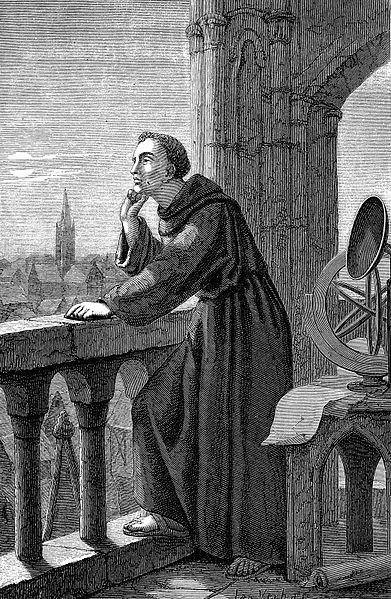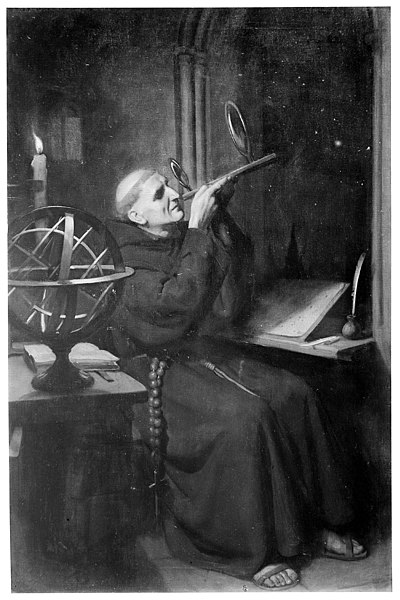Roger Bacon, also known by the scholastic accolade Doctor Mirabilis, was a medieval English philosopher and Franciscan friar who placed considerable emphasis on the study of nature through empiricism. In the early modern era, he was regarded as a wizard and particularly famed for the story of his mechanical or necromantic brazen head. He is sometimes credited as one of the earliest European advocates of the modern scientific method, along with his teacher Robert Grosseteste. Bacon applied the empirical method of Ibn al-Haytham (Alhazen) to observations in texts attributed to Aristotle. Bacon discovered the importance of empirical testing when the results he obtained were different from those that would have been predicted by Aristotle.
Statue of Bacon at the Oxford University Museum of Natural History
A diorama of Bacon presenting one of his works to the chancellors of Paris University
A 19th-century engraving of Bacon observing the stars at Oxford
Ernest Board's portrayal of Bacon in his observatory at Merton College
It was customary in the European Middle Ages, more precisely in the period of scholasticism which extended into early modern times, to designate the more celebrated among the doctors of theology and law by epithets or surnames which were supposed to express their characteristic excellence or dignity. The following list exhibits the principal surnames with the dates of death.
Doctor Acutissimus
Doctor Angelicus
Doctor Arca testamenti; Evangelical Doctor
Doctor Christianus








